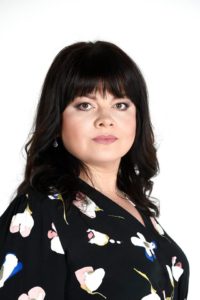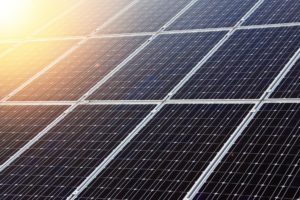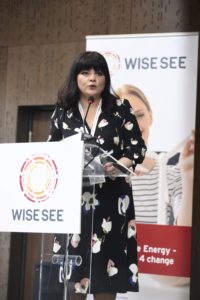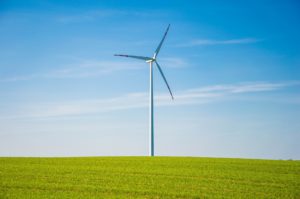Tap into the collective power of influential business and NGO pioneers to create new strategies and
tactics to build a more socially and environmentally conscious world.

Tap into the collective power of influential business and NGO pioneers to create new strategies and
tactics to build a more socially and environmentally conscious world.
Branislava Jovičić
Company/NGO Name:
Center for Promotion of Sustainable Development – NGO
Region, Country:
Serbia

 1. What is the mission of your company/NGO?
1. What is the mission of your company/NGO?
The Center for Promotion of Sustainable Development is devoted to just that – the promotion of sustainable development. Since a couple of my friends and I founded it back in 2014, our NGO has had a strong focus on the promotion of green topics, primarily sustainable energy, climate action, and environmental protection. Through our work, we are communicating and helping achieve even 11 out of 17 SDG goals in Serbia and the Balkans region!
2. What is the most innovative or environmentally/socially impactful project/practice your company/NGO has implemented?
Our project, Balkan Green Energy News (BGEN), has been selected as one of 40 projects in the entire world for the Best Climate Solutions 2018 Award. BGEN is a free of charge, bilingual news outlet, reporting about green topics from a selection of accurate, reliable, and straight-to-the-point news, policy actions, investments, job opportunities, and events in the Balkans region. It was launched to address one of the most common, non-financial obstacles in the promotion of renewable energy and energy efficiency – that of a lack of available information. In the later stages of our portal’s development, we expanded the scope of topics we cover and report about. Additionally, we regularly introduce new and innovative comms formats and features in line with the best communication practices.
3. How have those projects positively impacted the local community and/ or your country?
In only three years, BGEN has become the leading sustainable energy and green economy news outlet in the region. It is a “meeting spot” for investors, decision makers, academia, business community, citizens, and other media. By sharing news of the best practices and challenges that various stakeholders face, we also educate and raise awareness of local communities, and motivate them to truly embrace the green concept and the numerous potentials it creates, as well as implement such in their lives or their company or institution’s development strategies, etc.
 4. Please share any new projects you will be implementing in the near future.
4. Please share any new projects you will be implementing in the near future.
We plan to replicate the WISE SEE project (Women in Sustainable Energy SEE) in the region. After its successful piloting in Serbia, wherein we did a study on the position, attitudes, and roles of women professionally engaged in sustainable energy and environment, and established a professional network comprised of almost 200 women professionals, we are now looking for donors and partners to help us expand this project. In Serbia, we also plan to help women in agribusiness and the owners of SMEs to green their business by improving energy efficiency and implementing renewable energy technologies. This project has been presented as a success story project at several conferences in Rome and Geneva, and we are sure its impact will be even bigger once we implement it in other countries in the region.
5. What are your top 3 career accomplishments?
The first one is connected to the period in which I started my professional career. I was a member of a team of five which established a representative office of Hellenic Petroleum, and later on a commercial company called EKO Serbia. I was in charge of human resources, marketing, and public relations. Many of the projects and programs that I implemented in Serbia were accepted by the Hellenic Petroleum Group and implemented in other countries of operations. For a starting point, it was a huge success. My second accomplishment, in a way, combined both the professional and the personal. After I gave birth to my second child, I lost my job, since my employer at that time, telecom company Telenor, was not in favour of welcoming back mothers from maternity leave. For me, it was one of the most stressful moments in my career and life and it took me some time to reorganize myself and to start thinking about the situation as an opportunity rather than a problem. A year later, I established a communication consultancy, Beyond Communications Consulting, which I have been successfully managing for five years. The third one is this Balkan Green Energy News portal. It is my brain and soul child and my team and I are strongly committed to making it the most credible and reliable source of green information in Serbia and the region.

6. What inspired you to choose your career path?
I started my career in communications and that is something I love to do. However, I changed sides, and from the fossil fuel sector, I switched to the green sector, which ended up being one of my best professional decisions. During my postgraduate studies in communications, I decided to deal with PR in the promotion of renewable energy sources, and at that time that was pure avant-garde in Serbia. When my thesis was chosen for the best academic thesis by the Serbian Society for Public Relations in 2013, it represented an important encouragement for me to step outside the box and try to develop innovative communication solutions and formats which would help in mainstreaming the topic of sustainable energy and green economy. Also, I am deeply thankful to Professor Jeffrey Sachs, whose online course, “Sustainable Development,” at Columbia University, I completed. He inspired me to start thinking in what ways I could contribute to sustainable development promotion and that’s when I realized that the greatest contribution would be to combine sustainable development and my expertise – communications.
7. Personally—Why do you care about sustainability? What is your story?
The time we live in has challenged our generation with a major important task. It is upon us to engage our knowledge, skills, and intelligence to create sustainable, smart, and green solutions that will make our lives and the lives of our children and future generations sustainable, safe, and worthy of humans. We are not entirely to blame for the condition that the planet is in, but the responsibility certainly lies with us. It is why we all need to engage and unite in a common mission, and to achieve synergy in action, reflection, and planning.
 8. What is/are the biggest incentive(s) for businesses in your country to adopt sustainable practices?
8. What is/are the biggest incentive(s) for businesses in your country to adopt sustainable practices?
There is an incentive program for energy produced from renewable energy sources and modest pioneering programs for supporting public institutions in improving energy efficiency. There are some incentives in the recycling sector, as well. However, the big picture, the one that would mainstream the topic of sustainable development as such, and provide strong support to businesses and other organizations that are committed to sustainability – that one is missing. That leaves a lot of space for a serious program to be implemented.
9. What is/are the biggest environmental or social challenge(s) facing your country today?
There is a problem in Serbia with old thermal power plants, which are huge polluters, and a problem also exists in a strong and stubborn reliance on limited coal reserves instead of developing and implementing smart solutions for sustainable energy development. The waste sector and water sector need strong reforms and investments. In Belgrade alone, the country’s biggest city and capital, there are around 130 places where waste water is being released into the Danube and Sava rivers. The situation in other parts of Serbia is more or less the same. Recently, there was a citizen’s initiative launched to put pressure on the state and ministries in charge to prevent the construction of small hydropower plants in protected areas. It is one thing to use the hydropower potential to produce energy in a sustainable manner and another to not do it in a sustainable way. This is a good example of citizens taking the lead in fighting for environmental causes and a good example demonstrating what sustainable development actually means.
Keep up with Branislava Jovičić and Balkan Green Energy News on social media:
Branislava Jovičić: Twitter – LinkedIn
Balkan Green Energy News (BGEN): Website – Twitter – Facebook – LinkedIn
Women In Sustainable Energy SEE (WISE SEE): Website – Twitter